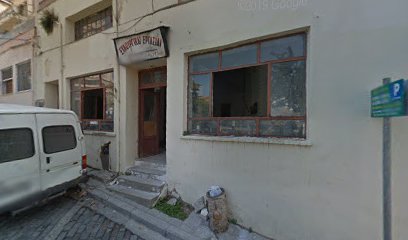
The Timeless Ruins of Philippi: A Journey Through History
Explore the Archaeological Site of Philippi, where ancient history unfolds amidst stunning landscapes and significant ruins of a once-thriving city.
The Archaeological Site of Philippi offers tourists a captivating glimpse into ancient history, showcasing remarkable ruins that narrate the story of a city founded in 356 BC. Visitors can explore the remnants of Roman theaters, early Christian basilicas, and the iconic marketplace, enriching their understanding of this UNESCO World Heritage site. Surrounded by stunning landscapes, Philippi is a must-visit for history enthusiasts and casual travelers alike.
A brief summary to Archaeological Site of Philippi
- EO Dramas Kavalas, Philippi, 640 03, GR
- Visit website
- Monday 8:30 am-3:30 pm
- Tuesday 8:30 am-3:30 pm
- Wednesday 8:30 am-3:30 pm
- Thursday 8:30 am-3:30 pm
- Friday 8:30 am-3:30 pm
- Saturday 8:30 am-3:30 pm
- Sunday 8:30 am-3:30 pm
Local tips
- Visit early in the morning to avoid crowds and enjoy cooler temperatures.
- Wear comfortable walking shoes as the terrain can be uneven.
- Don't forget your camera to capture the stunning ruins and landscapes.
- Consider hiring a local guide to gain deeper insights into the site's history.
Getting There
-
Car
If you are traveling by car, head towards the E90 highway from your current location in East Macedonia and Thrace. Follow the E90 towards Kavala. When you reach Kavala, take the exit for EO Dramas Kavalas towards Philippi. Continue on EO Dramas Kavalas for about 12 km until you see signs for the Archaeological Site of Philippi. The site will be on your right. Parking is available near the entrance.
-
Public Transportation (Bus)
For those using public transportation, take a bus from your nearest bus station to Kavala. Buses frequently run from various towns in East Macedonia and Thrace to Kavala. Once you arrive in Kavala, transfer to a local bus that goes to Philippi. The local buses are usually marked with signs indicating their destination. Ask the driver for confirmation if needed. The bus will drop you off near the entrance to the Archaeological Site of Philippi. Ensure to check the bus schedules for return trips.
-
Taxi
If you prefer a more direct route, you can take a taxi from your location to the Archaeological Site of Philippi. Taxis are available in most towns and cities in East Macedonia and Thrace. Simply provide the driver with the address: EO Dramas Kavalas, Filippi 640 03. The fare will vary depending on your starting point, so it’s advisable to confirm the estimated fare before starting your journey.
Discover more about Archaeological Site of Philippi
Iconic landmarks you can’t miss
Presian inscription
0.5 km
Discover the Presian Inscription, an incredible historical landmark in Filippoi that showcases the rich heritage of ancient civilizations through its captivating engravings.

Philippi
4.5 km
Explore Philippi: A UNESCO World Heritage site rich in ancient history, stunning ruins, and the birthplace of early Christianity in Greece.
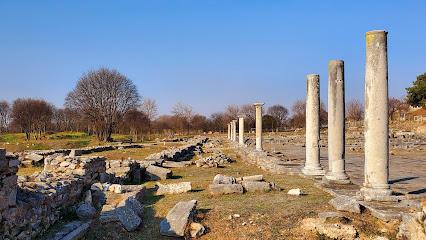
Ekklisia Profitis Ilias - Ιερός Ναός Προφήτη Ηλία
12.7 km
Discover the breathtaking beauty and spiritual serenity of Ekklisia Profitis Ilias, a stunning church offering panoramic views of Kavala.
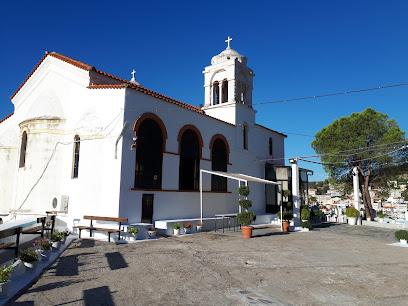
Tobacco Museum of Municipality of Kavala
13.0 km
Explore Kavala's rich history at the Tobacco Museum, where the journey of tobacco unfolds through immersive exhibits and engaging storytelling.
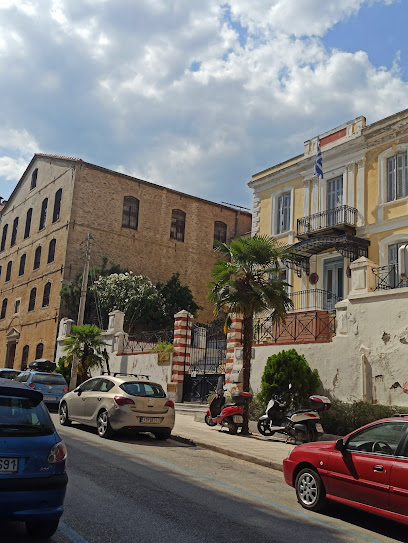
Municipal Tobacco Warehouse
13.1 km
Discover the Municipal Tobacco Warehouse in Kavala, a cultural gem blending history and contemporary art in a stunning architectural setting.
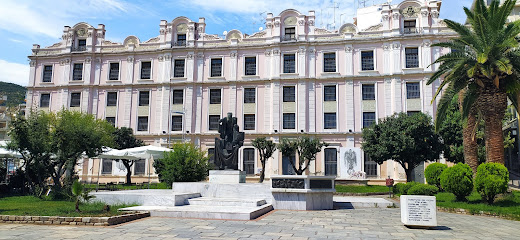
Τουριστική Επιχείρηση Καβάλας
13.2 km
Explore the stunning coastal city of Kavala, a perfect blend of history, culture, and natural beauty in Greece's enchanting landscapes.
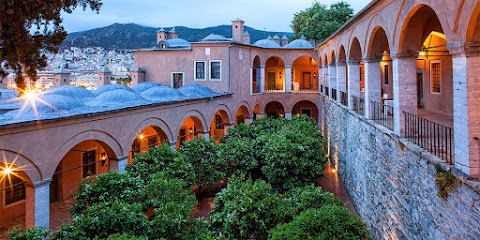
Brickwall Pub
13.3 km
Experience the lively atmosphere and local charm at Brickwall Pub in Kavala, offering a diverse drink menu and a welcoming ambiance.
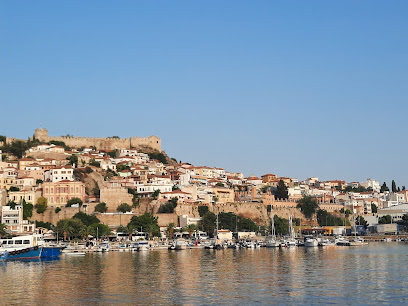
Kavala downtown
13.5 km
Explore the vibrant streets of Kavala downtown, where history meets modern charm in a picturesque coastal setting.
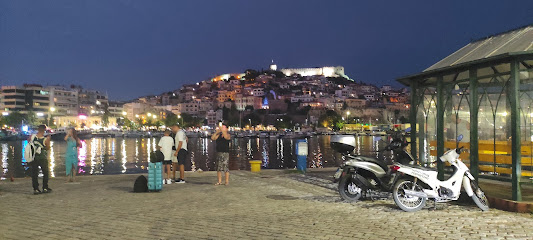
Blue Rooster Emporium
13.7 km
Explore Blue Rooster Emporium in Kavala for unique Greek souvenirs that capture the essence of the region's rich culture and craftsmanship.
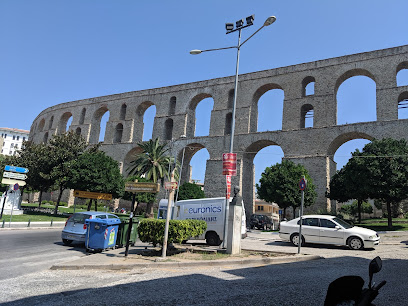
OLD TOWN - PANAGIA
13.8 km
Discover the historic charm and breathtaking views of Old Town - Panagia, a must-visit landmark in Kavala, Greece.
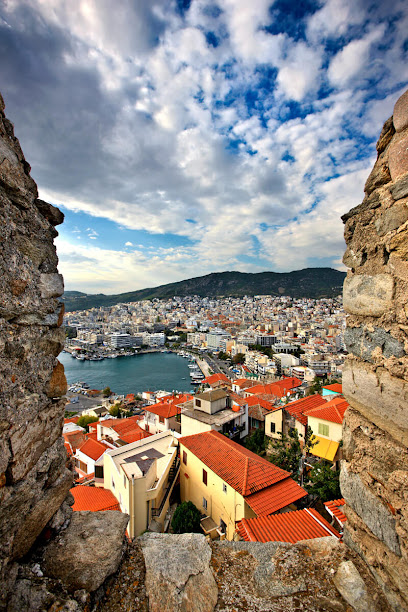
Kavala-Old town
13.8 km
Discover the enchanting Old Town of Kavala, a historical gem with stunning views, vibrant culture, and delicious local cuisine.
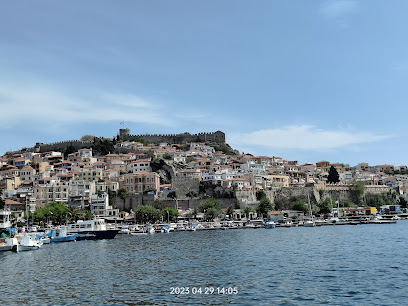
Square Mehmet Ali
14.0 km
Experience the vibrant culture and historical charm of Kavala at Square Mehmet Ali, the heart of this picturesque Greek city.
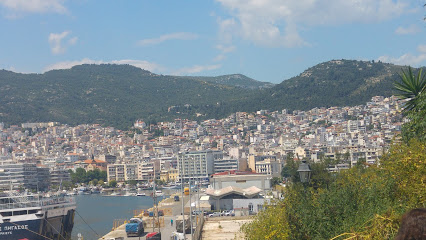
Mehmet Ali's Residence Museum
14.0 km
Explore the rich history of Kavala at Mehmet Ali's Residence Museum, showcasing the life of Egypt's influential leader and the city's vibrant past.
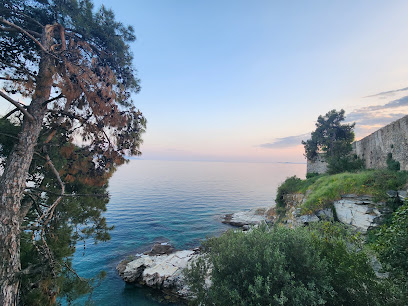
Perigiali beach
14.1 km
Experience the breathtaking beauty of Perigiali Beach in Kavala, Greece, where golden sands and crystal-clear waters await you for ultimate relaxation.
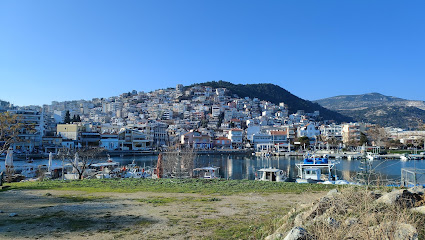
Kavala Beach
14.4 km
Discover the serene beauty of Kavala Beach, where golden sands meet crystal-clear waters for a perfect Aegean escape.
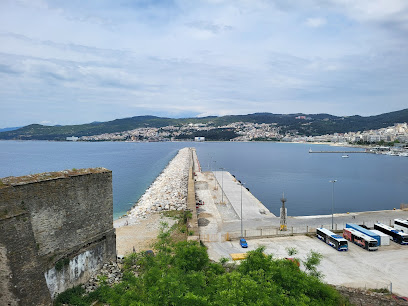
Unmissable attractions to see
Ancient Theatre of Philippi
0.1 km
Explore the Ancient Theatre of Philippi, a UNESCO World Heritage site, and immerse yourself in Greece's rich historical and cultural tapestry.
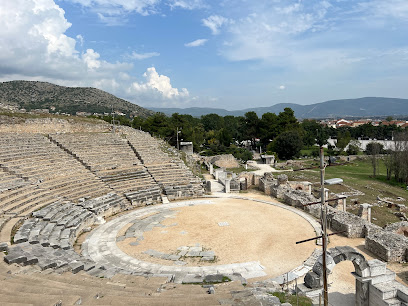
Roman Forum of Philippi
0.3 km
Explore the Roman Forum of Philippi, an ancient landmark that reveals the rich tapestry of history, culture, and architecture in Greece.
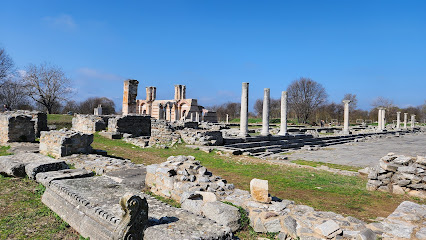
Archaeological Museum of Philippi
0.5 km
Explore the Archaeological Museum of Philippi, where ancient history meets stunning artifacts in an unforgettable cultural journey.
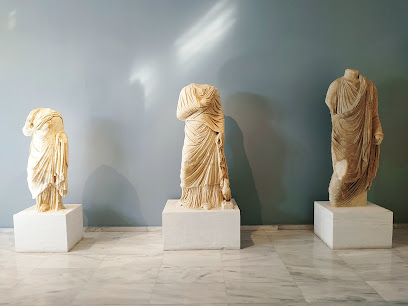
Ancient Cemetery
0.6 km
Discover the Ancient Cemetery in Philippi, a serene site steeped in history and culture, where the stories of the past come to life amid ancient gravestones.
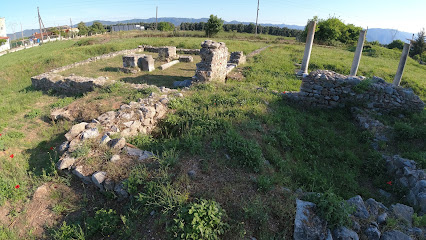
Roman Villa (Baths - Club) of Philippi
0.6 km
Explore the ancient Roman Villa of Philippi, a historical landmark rich in culture and architectural beauty, nestled in Greece's historic landscapes.
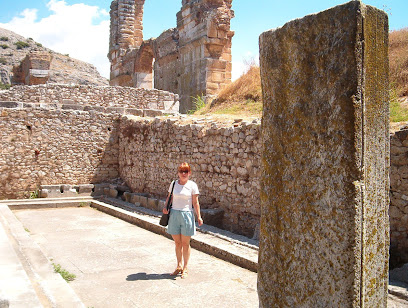
War Memorial
0.7 km
Discover the War Memorial in Krinides, a powerful tribute to bravery and sacrifice, surrounded by stunning gardens and rich history.
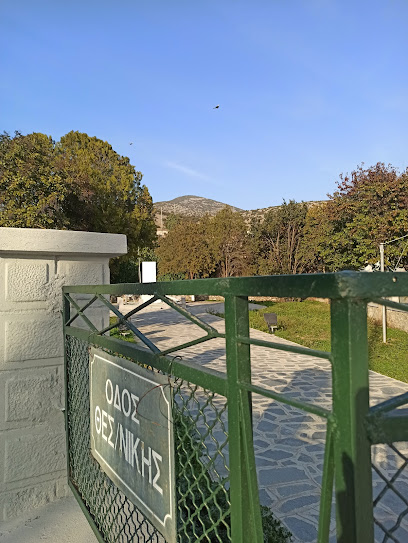
Ancient Acropolis of Philippi
0.8 km
Discover the Ancient Acropolis of Philippi, a UNESCO World Heritage site showcasing rich history, stunning ruins, and the birthplace of early Christianity in Greece.
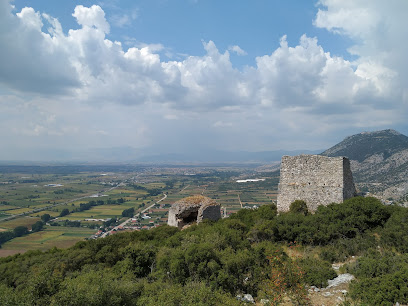
Holy Baptistery of Saint Lydia of Philippi
1.2 km
Explore the Holy Baptistery of Saint Lydia of Philippi, a historic Greek Orthodox church rich in spiritual significance and stunning Byzantine architecture.
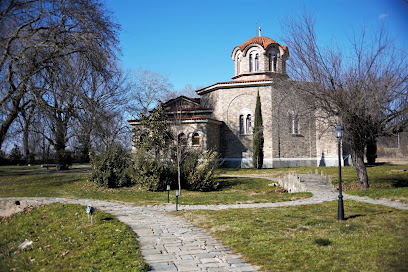
Philippi paintings
4.5 km
Explore the captivating frescoes of Philippi, where art meets history in the heart of ancient Greece.
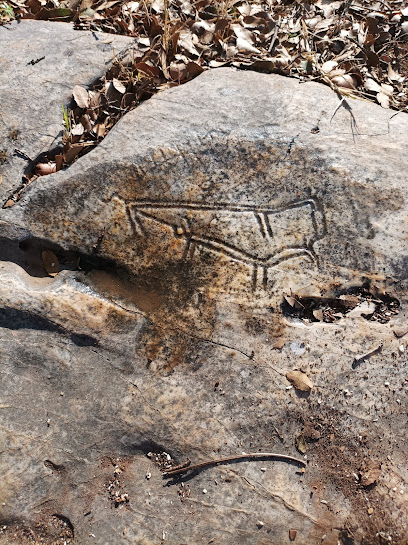
Νερόμυλος Παλαιάς Καβάλας
10.5 km
Discover the hidden gem of Palaiokavala, where stunning beaches meet rich history in a picturesque Greek village.
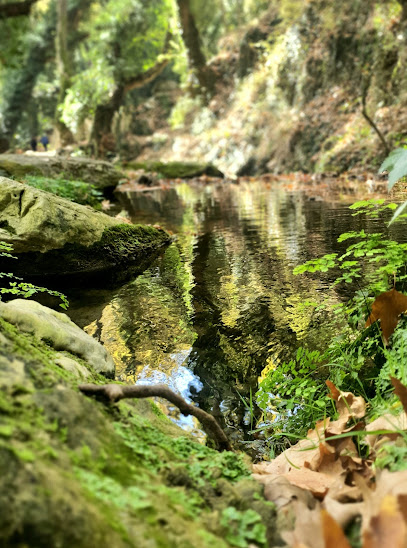
Panorama of the city
11.1 km
Discover the breathtaking Kavala Panorama, offering stunning views of the Aegean Sea and the charming cityscape, perfect for unforgettable experiences.
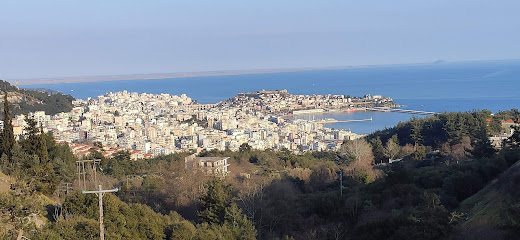
Via Egnatia
11.3 km
Discover the historical significance of Via Egnatia in Kavala, Greece, where ancient paths meet breathtaking views and rich cultural heritage.
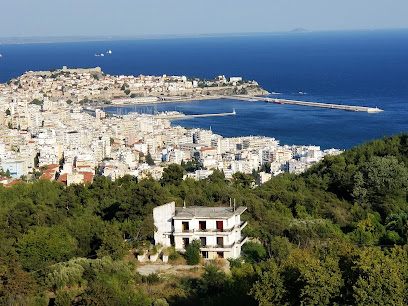
Cross & fire lookout station
11.7 km
Discover stunning panoramic views and rich local lore at the Cross & Fire Lookout Station in Kavala, a must-visit tourist attraction.
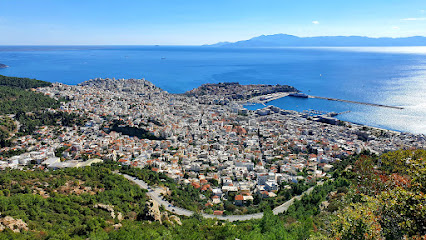
Hexagonal Samouter Table
11.9 km
Discover the charm of the Hexagonal Samouter Table Park in Kavala, where nature meets culture in a serene setting perfect for relaxation.
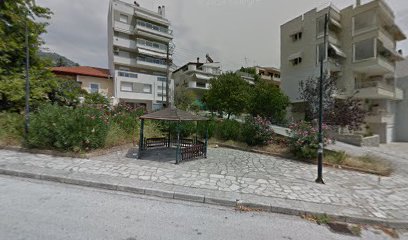
Sígma
12.0 km
Experience tranquility and natural beauty at Sígma Park, a peaceful retreat in Kavala, perfect for relaxation, picnics, and family fun.
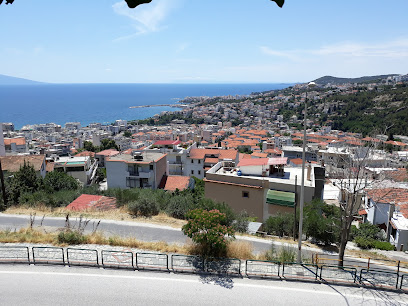
Essential places to dine
Ta Batzanakia
12.4 km
Discover the flavors of Greece at Ta Batzanakia in Kavala - where tradition meets taste in every dish.
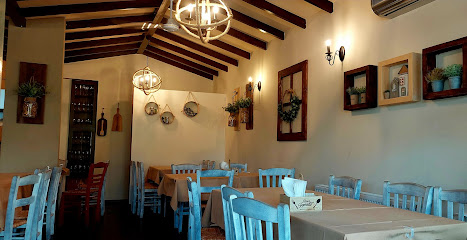
Tavern - Ouzeri Dionysos
12.4 km
Savor authentic Greek cuisine at Tavern - Ouzeri Dionysos in Kavala; a delightful experience filled with local flavors and warm hospitality.
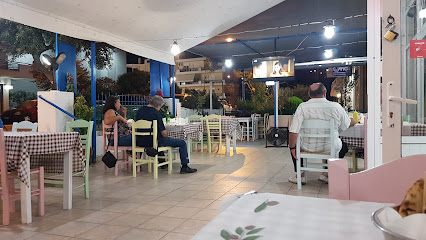
Yalós
12.6 km
Experience the taste of Mediterranean cuisine at Yalós in Kavala – where stunning views meet delicious flavors.
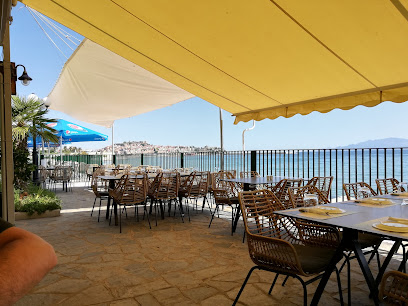
Mylou Molos Cafe Bar
12.7 km
Experience the charm of Kavala at Mylou Molos Cafe Bar with delicious food and stunning views.
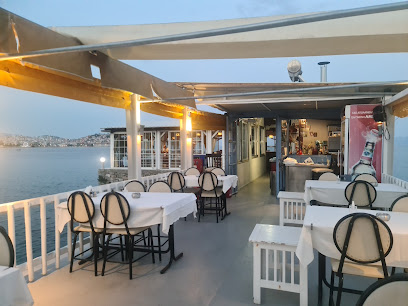
La Rocca
13.1 km
Experience authentic Italian flavors at La Rocca in Kavala - where every pizza is crafted with love and tradition.
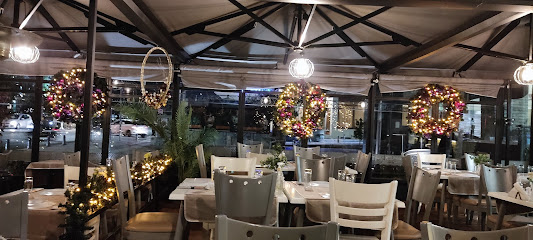
Bitte Fate
13.1 km
Experience authentic Greek flavors at Bitte Fate in Kavala - where tradition meets taste in a cozy atmosphere.
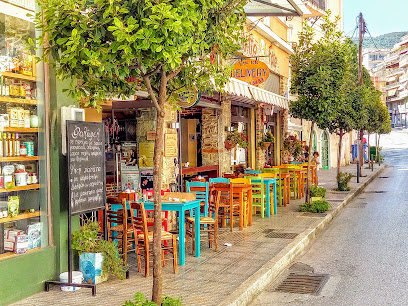
Vouka
13.2 km
Experience the rich flavors of authentic Greek cuisine at Vouka in Kavala - where every dish tells a story.
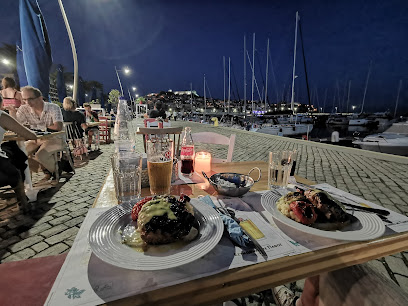
Στο κουτούκι του Σαρρη
13.2 km
Experience authentic Greek cuisine at Στο κουτούκι του Σαρρη in Kavala - where tradition meets modern taste.
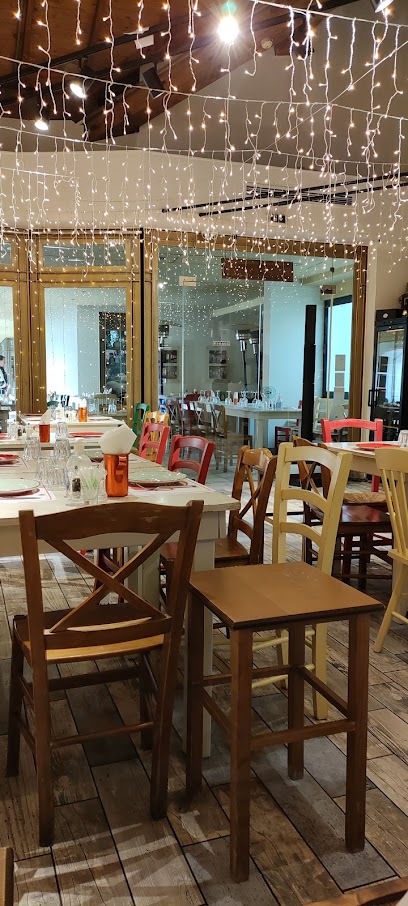
Aparto Bistro • Cafe Bar
13.2 km
Discover the best flavors in Kavala at Aparto Bistro • Cafe Bar - where bistro meets café in a delightful fusion.
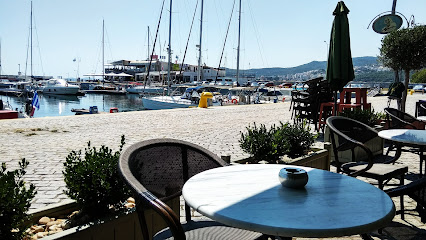
Tsipouradiko Nemesis
13.2 km
Discover authentic Greek flavors at Tsipouradiko Nemesis in Kavala – a culinary haven for seafood lovers seeking vibrant dining experiences.
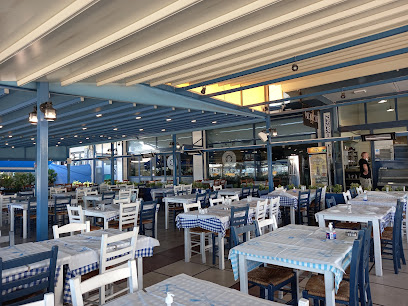
Konstantinoupoli restaurant
13.3 km
Experience authentic Greek flavors at Konstantinoupoli Restaurant in Kavala, where every meal tells a story of tradition and taste.
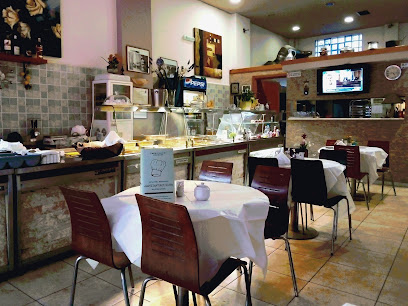
Ψαράκι
13.3 km
Discover Ψαράκι in Kavala - where exquisite seafood meets breathtaking seaside views in a charming Mediterranean setting.
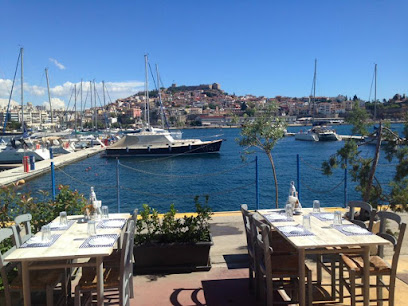
Fish & Grill
13.3 km
Experience authentic seafood dining in Kavala with fresh fish dishes and traditional fish and chips at Fish & Grill.
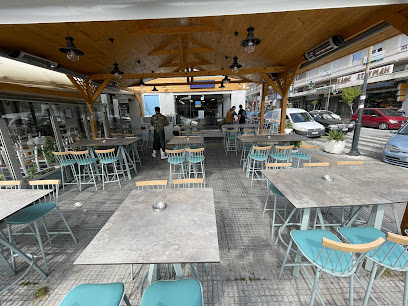
Venezia Cuisine
13.3 km
Discover authentic Greek flavors at Venezia Cuisine in Kavala – where tradition meets modern culinary artistry.
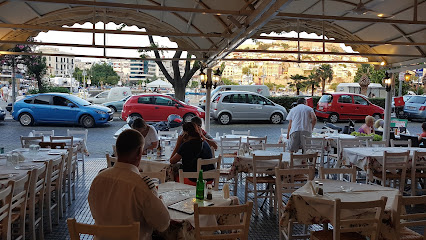
EPICURE
13.4 km
Discover Epicure in Kavala - where Mediterranean flavors meet modern dining in a vibrant atmosphere.
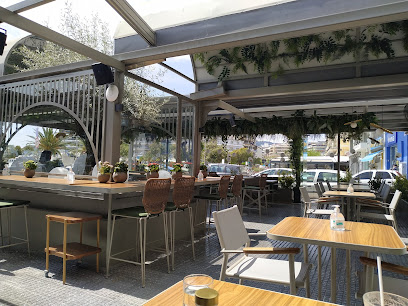
Markets, malls and hidden boutiques
Funky Buddha @Block62 Kavala
12.7 km
Explore Funky Buddha in Kavala for trendy men's and women's clothing, offering stylish apparel and accessories that capture the essence of modern fashion.

K&B fashion room
13.0 km
Explore K&B Fashion Room in Kavala for chic clothing and unique accessories that embody the essence of Greek style and contemporary fashion.

Gallé
13.1 km
Discover Gallé in Kavala: Your destination for chic women's fashion, accessories, and shoes that define style and elegance.

Best For Kavala
13.1 km
Explore Kavala's vibrant gift shop, a charming destination for unique souvenirs, party supplies, and local treasures that capture the essence of Greece.
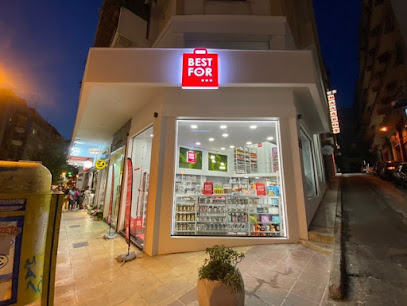
SEPHORA KAVALA
13.2 km
Explore beauty treasures at Sephora Kavala, where high-end cosmetics meet exceptional service in a chic shopping environment.

Nike Store
13.2 km
Explore the Nike Store in Kavala for the latest in sportswear, footwear, and athletic gear, perfect for every fitness enthusiast's style.

Marks & Spencer
13.2 km
Discover the essence of style and quality at Marks & Spencer in Kavala, where fashion meets affordability for an unforgettable shopping experience.

Cherry Blossom Boutique
13.2 km
Discover exquisite women's fashion at Cherry Blossom Boutique, a must-visit destination in Kavala, Greece for style-savvy travelers.

PASAPORTIS N & O.E.
13.2 km
Explore PASAPORTIS N & O.E. in Kavala for an exceptional shopping experience with stylish clothing options that cater to every taste.
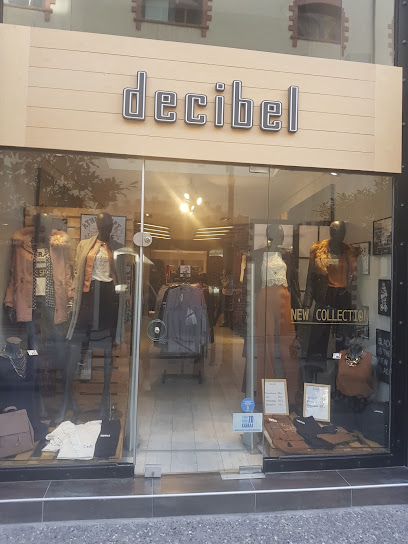
Mimi D.lux FASHION & ART BOUTIQUE
13.2 km
Discover a captivating blend of fashion and art at Mimi D.lux FASHION & ART BOUTIQUE in Kavala, where style meets creativity.
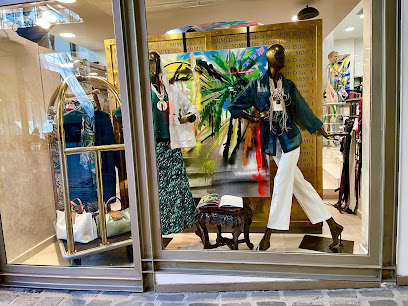
ΑΤΕΛΙΕ - ΜΟΔΑΣ
13.3 km
Explore stylish selections at ΑΤΕΛΙΕ - ΜΟΔΑΣ, a premier clothing boutique in Kavala, where local fashion meets personalized service.
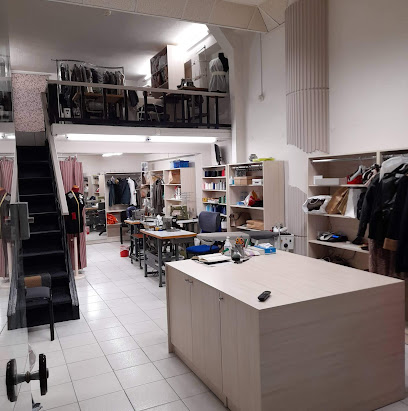
Cheap & Chic
13.3 km
Explore Cheap & Chic in Kavala for unique souvenirs, cosmetics, and stunning costume jewelry reflecting the heart of Greek culture.
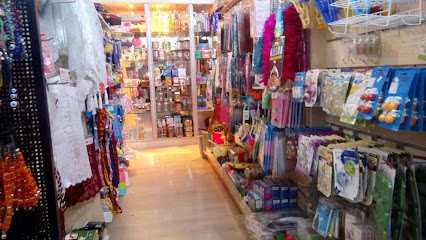
Boho Fanatic
13.3 km
Explore Boho Fanatic in Kavala for unique bohemian clothing and accessories that elevate your travel style.

Gallé jeans
13.3 km
Discover stylish denim and unique clothing at Gallé Jeans in Kavala, where quality meets local flair for an unforgettable shopping experience.
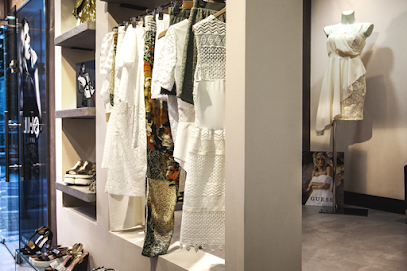
Vitrine Boutique
13.3 km
Discover unique women's clothing and accessories at Vitrine Boutique in Kavala, where style meets local charm.

Essential bars & hidden hideouts
Aqua Club
12.9 km
Experience the lively atmosphere and diverse drink selection at Aqua Club, a must-visit bar in the heart of Kavala.
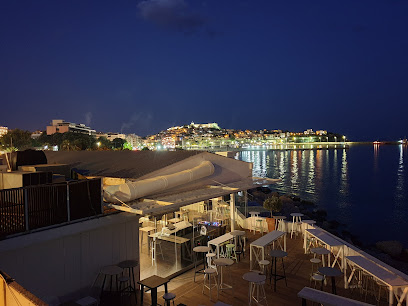
Sante Bar
13.1 km
Experience the vibrant nightlife of Kavala at Sante Bar, where exceptional cocktails and a lively atmosphere await you.
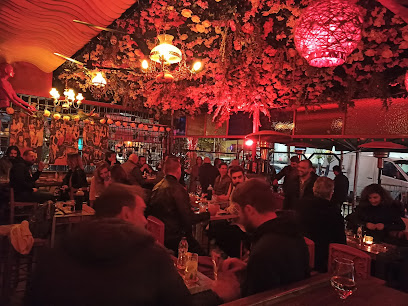
FRANCO'S
13.1 km
Discover the cozy charm of Franco's in Kavala, where exquisite wines and delightful ambiance create the perfect escape.
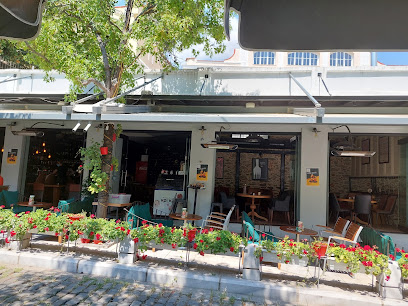
BLUE
13.2 km
Discover the lively ambiance and refreshing drinks at Blue Cafe, a top bar in Kavala, Greece, perfect for relaxation and socializing.
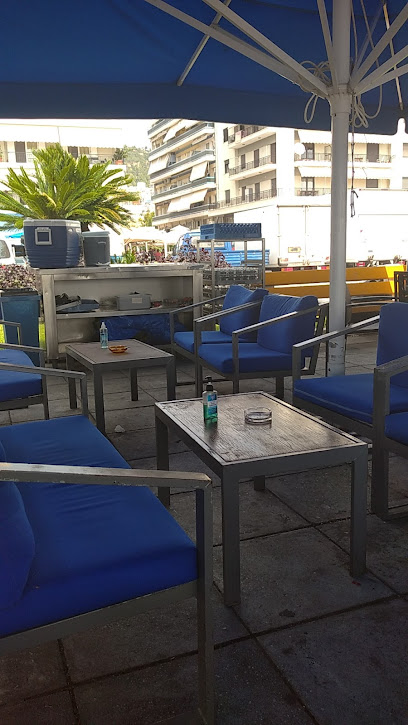
Naval Terrace Bar
13.3 km
Discover the vibrant Naval Terrace Bar in Kavala, where stunning sea views and a lively atmosphere await every visitor.
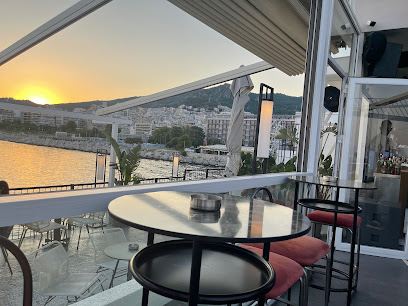
Uncorked - The Wine House
13.5 km
Discover the exquisite world of wines at Uncorked - The Wine House in Kavala, where every sip tells a story.

Capsula
13.5 km
Experience the vibrant nightlife of Kavala at Capsula, where expertly crafted cocktails meet a welcoming atmosphere.
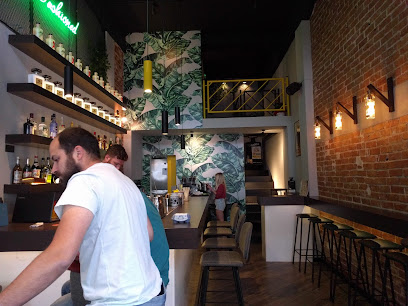
ΧΑΜΑΜ bar
13.5 km
Discover the vibrant nightlife and tantalizing grilled flavors at ΧΑΜΑΜ Bar, a must-visit spot for tourists in Kavala, Greece.
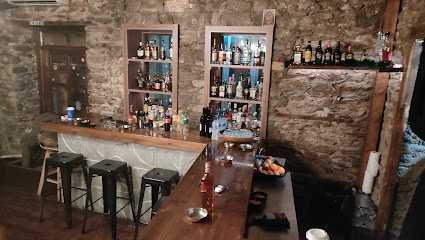
Ginger Urban Bar
13.5 km
Experience the vibrant nightlife of Kavala at Ginger Urban Bar, where expertly crafted cocktails meet stylish ambiance and warm hospitality.
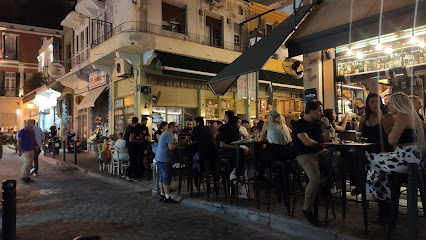
Pecado - Tapas Bar -
13.6 km
Discover the vibrant flavors of Mediterranean cuisine at Pecado - Tapas Bar in Kavala, where every dish tells a story.
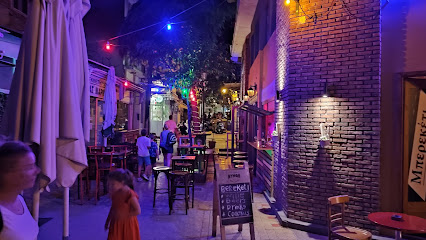
Papagalos Rock Cafe Bar
13.6 km
Discover the lively atmosphere of Papagalos Rock Cafe Bar in Kavala, where delicious drinks and vibrant nightlife come together for an unforgettable experience.
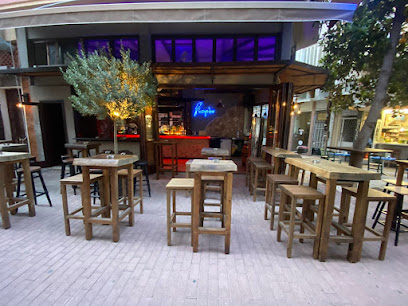
Medousa Pub
13.6 km
Experience the lively ambiance and delicious grill dishes at Medousa Pub in Kavala, a must-visit for food lovers and nightlife enthusiasts.
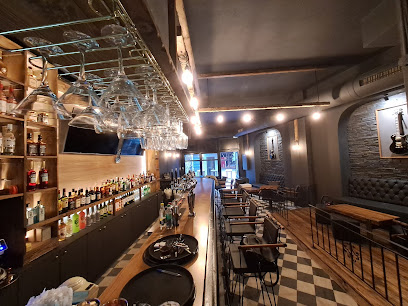
Ypobrychio
13.6 km
Experience the vibrant nightlife of Kavala at Ypobrychio, where exquisite cocktails and a lively atmosphere await you.
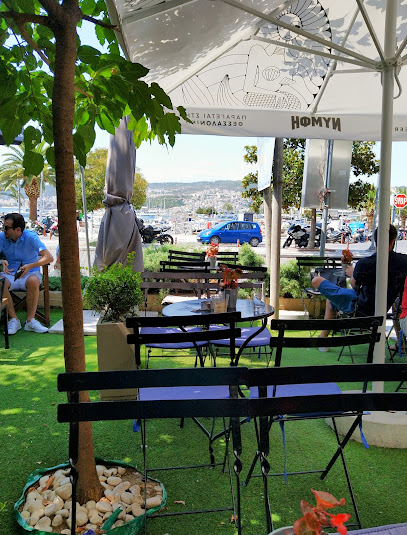
Derelicte
13.7 km
Discover the vibrant nightlife at Derelicte, Kavala's top cocktail bar offering unique drinks and an electrifying atmosphere.
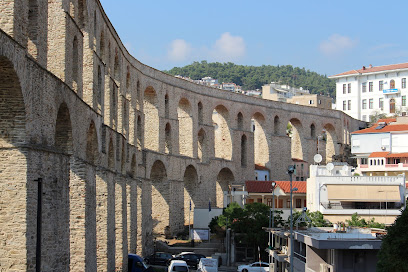
Espresso & 'tails
13.7 km
Experience the vibrant nightlife of Kavala at Espresso & 'tails, where innovative cocktails and a cozy ambiance await.
